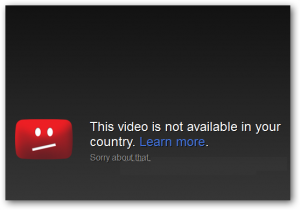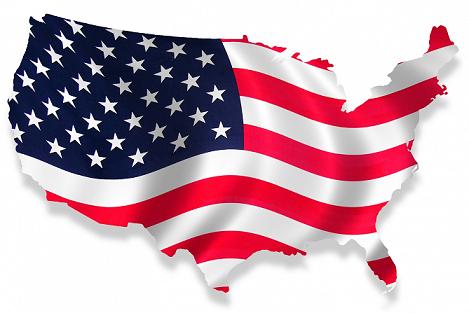Last Updated on November 28, 2023
Why People Use an American Proxy Server
Why do people look for USA Proxy and VPN servers? Well there’s a variety of reasons and now many people use technology like this just to hide their identity and their IP online. Sometimes specifically for privacy reasons or quite often they simply need US IP addresses to bypass internet blocks which are based on geographic location.
For example if you are having a holiday in South Africa, don’t presume you can access all the same web sites that you do from the United States. This simply isn’t the case, in fact the internet is increasingly becoming divided up and filtered usually based on your physical location.
Many sites particularly some of the major media sites restrict access to US visitors only, blocking any IP server addresses from outside the country. In addition you’ll also find that countries like Turkey heavily filter the internet too, often restricting sites like Twitter and Facebook to anyone inside the country. Where you are physically located when using the internet is way more important that which passport you hold. Even if you’re a United States citizen, if you’re outside the borders then you’re likely to be blocked from many of it’s best websites.
Don’t Use a Free American Proxy Server
It used to be possible to use free servers from a proxy list to hide your real address but it’s not advisable to use these anymore. The problem with these free web proxy setups is that the vast majority are merely badly configured servers accidentally left open. They are very rarely even datacenter proxies just privately owned ones that have been effectively hijacked. Unfortunately cyber criminals and hackers also use them, primarily to distribute malware and to steal valuable personal information – e.g. passwords, emails etc. Indeed there are thousands located in the United States designed to lure in visitors from all over the world to harvest their details.
So what’s the difference between these two technologies and which one should I use. Both perform basically the same function and can give you a US IP address but in very different ways, which ultimately will define which is best for you.
Proxy Servers
A proxy is a computer that acts as an intermediary between you an the websites you visit. When you use a proxy, the traffic will appear to come from it’s IP address not yours. This is why people will use a US proxy to access US only resources, a UK proxy to access the BBC and so on.
The two main types of proxies are as follows:
- HTTP proxies – designed to work for web pages i.e. HTTP
- Socks Proxies – no specific protocol, handles all traffic.
A few years ago, proxies were pretty much all you needed to access most sites and you could find free ones all over the internet. Nowadays though most media sites can detect and block the use of proxies and there are many security issues with them too. They can still work for a few sites, a proxy based in the UK will still allow you to access the majority of the BBC iPlayer application for example (need a VPN to download from the site though).
VPN Servers
VPN stands for Virtual Private Network and in some ways they perform a similar function to proxies. A VPN creates a secure, encrypted tunnel between your client and a host VPN server. This allows a new level of privacy as even your ISP cannot see what you do online other than your connected to a secure VPN server. The main advantages are that the VPN provides a much higher level of privacy masking pretty much everything you do online from everyone. They are more resource intensive though and quite costly to run and support, which is why you won’t find any free ones online. 
The encryption layer does involve a slight overhead which can slow your connection down slightly. However the better ones like Identity Cloaker compress the data as it’s being transported so can actually slightly speed up your browsing through some VPN servers.
VPNs are much safer to use and if you have access to a VPN in the right country you should be able to access any restricted site. So to be clear you’ll need to use a US VPN or proxy for sites like ABC, HBO and Hulu, but a UK one for BBC, ITV and UK TV sites. Most of the major providers will provide a network of servers across the globe but you should check if you have a specific requirement.
For most people it makes sense to go for a supplier who has a large proxy server network not just located in the United States. Indeed most of the leading VPN companies have a proxy list which will allow you access to servers all over the world. It gives you the flexibility to access sites in all these countries. For example I watched an interesting News report on one of my interested from a TV station in Wellington, it was only accessible using a New Zealand based proxy server.
Here’s my two recommendations – both offer full VPNs, fast servers and access to many different countries in the basic subscription. Although both supply software to connect, you can set up the VPNs manually on most other devices like tablets, smart phones and even routers.
Identity Cloaker is definitely, primarily a security product but offers both proxy and VPN modes for accessing BBC Iplayer, Hulu and all media sites. They have loads of US proxy servers and even more UK based ones so if you want to watch the BBC iPplayer service then it’s probably your best option. They do have lots of servers in the France, Germany, Australia, Canada and throughout Europe as well though. They also don’t automatically renew your subscription either which I like.
NordVPN is probably the market leader in VPN services, they’re certainly one of the biggest in the world and have literally hundreds of servers in the United States. I do like their connection software which is easy to use and they have applications for most devices including Android and iOS phones/tablets. Lots of United States based servers included in the standard subscription. They also have the widest selection of servers across the world although perhaps many won’t use most of them. If you need a server in somewhere unusual they are most likely to have them. The support staff know their stuff and are very helpful. If there is any criticism it’s normally related to their scale, sometimes too many are loaded onto UK servers so access gets blocked from some servers to the BBC. I’ve not experienced it with any United States sites but it’s definitely possible that this will happen. They do have plenty to move to but it can be inconvenient if you’re watching something live for example. They’re very cheap but only if you subscribe to their longer subscription deals.
UPDATE – American Proxies, IPs and Servers
Netflix have implemented a new system for blocking VPNs and unfortunately it’s worked very well. Just using any United States based proxy or VPN is no longer enough to access Netflix with. If you want to connect back to watch the United States version of Netflix then you need to check current status with your chosen provider. The vast majority of VPNs no longer work because they detect certain IP classifications. Both Identity Cloaker and NordVPN do have some servers with IP addresses which currently work.
What Netflix started doing was to block all IP addresses from commercially registered ranges which included 99% of all VPN addresses which are generally installed in commercial datacenters. This was extremely effective initially and stopped just about all access to the United States version of Netflix (which is awesome by the way!). They seemed to have pulled back from this slightly, as commercial address ranges have started to work again. However if switching your version of Netflix to the United States one is important to you then you should double check with any provider you select.

